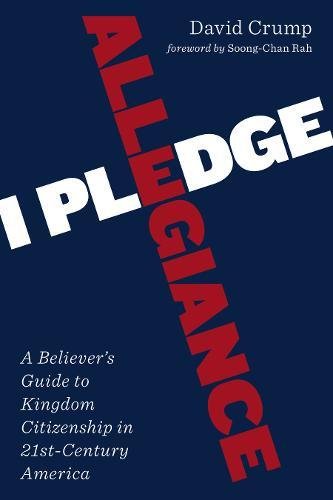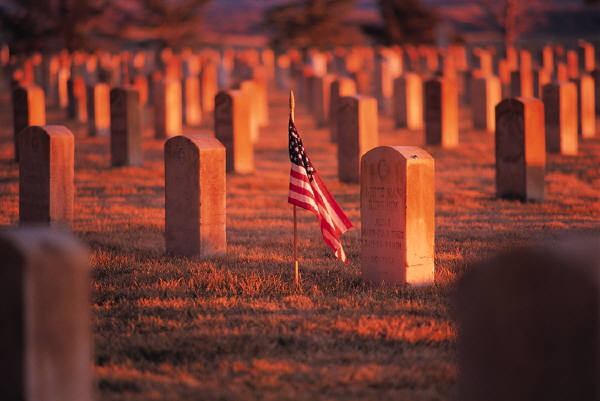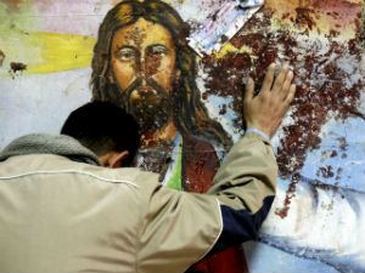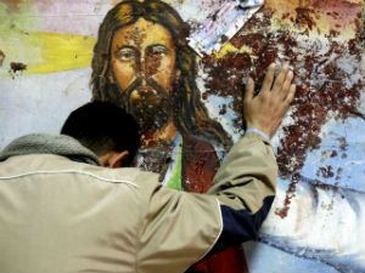In parts of Syria and Iraq this week, innocent civilians have been raped, murdered, and forced to flee from their homes by a religious fundamentalist group who has issued a chilling ultimatum to this ancient faith community which has resided in the area for centuries: convert, abandon your homes, or die by the sword. Elsewhere in the Middle East, a heavily-armed military continues its merciless bombing of a civilian population, killing hundreds of children in a campaign intended to show that it has no tolerance for agents of “terror” who kill innocent civilians.The first instance of violence has hardly reported in Western media at all, but where the story has gotten out, it has stirred universal condemnation from Americans and especially from Christians. This makes sense, because in the case of Iraq and Syria, the families being murdered in cold blood or fleeing for their lives are Christians, and their attackers are Muslim fundamentalists: a terrorist group known as ISIS. For many American Christians, this seems a clear-cut case of good guys vs. bad guys.In the second instance of families being murdered in cold blood, many Americans and (disturbingly) Christians especially are fully supportive of the state-sponsored violence. This can again be explained in terms of primitive, tribal allegiance: in this case, the civilian casualties are Muslims, and their executioners are members of the Israeli military. Many Christians feel a strong cultural and religious tie to Judaism, and they further extrapolate this kinship with Judaism and Jewish people to extend to the secular political state of Israel. Pretty soon the idea somehow arises that God is on the side of a powerful (although threatened) military state focusing its firepower on what is basically an oversized slum populated with traumatized, displaced people who are being exploited by Hamas. This idea hinges on the implicit assumption that “good guys” and “bad guys” can be separated out along tribal lines: Israelis,
good; Palestinians:
bad.
God certainly doesn’t take the side of either Israelis or Palestinians, much less Hamas or the Israeli Defense forces! But God does take sides: He is on the side of the weak against the strong, the oppressed against the oppressor, and grieving, the suffering, and the poor. God takes this side because He cares about the welfare of all people.
It seems to me that most of us have no clarity with which to understand what’s happening in these two arenas of violence or to perceive the connections between them. We lack that clarity because we are still stuck thinking in terms of Muslims vs. Christians or Jews vs. Muslims without noticing that both of these unfolding horror stories are really about human beings using power and violence to control and destroy other human beings. ISIS and Hamas seek to enforce their political agendas through violence and the threat of violence; the Israeli government uses the same strategy (but while claiming the moral high ground): other children must die, for the sake of our children.
The problem here is not Christianity, Judaism, or Islam as religions, but rather fundamentalist justifications of violence within each faith. If we are only willing to recognize the destructive effects of fundamentalism and violence in another religion—say, in Islam— and not in our own, then we merely strengthen our own dark side by ignoring it. We become blind to our own violence and capacity for evil, and that blindness (or state of denial) makes us more dangerous. We have only to take a sidelong glance back into Church history to see the destructive results of such blindness: burning heretics at the stake, conquering and subjugating non-Christian peoples, forcing conversion on threat of death. Sadly, Christians’ unquestioned dependence on violence has led them to act as aggressors and persecutors as often as they have been persecuted victims or peacemakers, all the while presuming to have God’s stamp of approval.
I am not pro-Palestinian. I am not pro-Israel. I don’t believe that the actions of the Israeli government represent all Jewish people any more than I believe that ISIS represents all Muslims, or that Hamas represents all Palestinians. I don’t believe that the dehumanizing, fear-based, reactionary violence of ISIS or Hamas or the Israeli military is worthy of any human being. And I do believe that Jesus is equally represented in the suffering of persecuted Christians, traumatized Palestinians, and kidnapped Israeli teenagers. The labels of race, religion, and nationality are not useful in helping us to see a way forward in these crises, because that is exactly the kind of “us vs. them” thinking that began these messes in the first place.
I am pro-life. And this is my appeal for other Christians to take a pro-life stance in this situation as well, by rejecting the political, religious, and pragmatic justifications for violence that are being made on all sides.
There is much more to talk about concerning the history and specifics of the complex situation in Israel/Palestine, and a detailed examination would only further demonstrate that nobody’s hands are clean; no group can be painted as completely innocent or completely at fault. I haven’t gone into the various documented human rights abuses of either Hamas or the Israeli military here because I believe that the root issue will not be resolved in a meticulous weighing up of one group’s sins against the other, but in a commitment to stop viewing the conflict through a tribal lens that requires taking sides in the first place. Every time that either Israelis or Palestinians have sought to resolve the situation with violence, it has only perpetuated the bloody cycle of killing by creating more fear and hatred. Why go on pursuing this dead-end strategy for “security” or “peace”?



